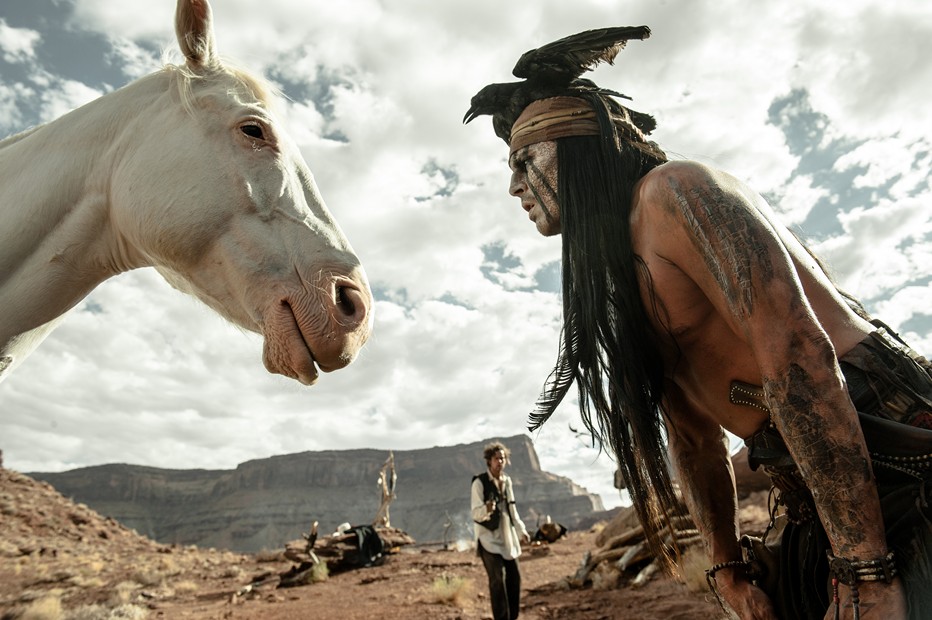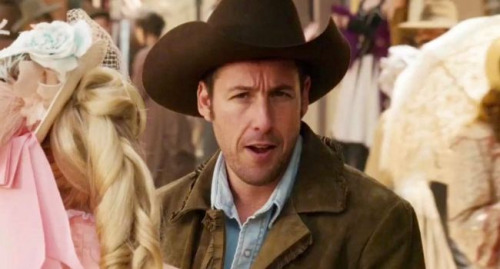5 Times Hollywood Threw Native Americans Under the Bus

By:
Upon winning the Golden Globe award for best actor in a film drama earlier this month for his role in "The Revenant," Leonardo DiCaprio used his acceptance speech to honor indigenous peoples and pledge his support for protecting their lands from corporate exploitation.
"The Revenant" notably cast Native American and Canadian aboriginal actors, including DiCaprio's on-screen son, who was played by 8-year-old Isaiah Tootoosis from the Poundmaker Cree Nation in Saskatchewan.
DiCaprio addressed corporate exploitation, but corporations aren't the only ones guilty of disrespecting native people.
Hollywood and Native Americans
For the most part, Hollywood films have failed to allow Native American actors to represent themselves on-screen and have portrayed Native American characters with misleading, offensive stereotypes.
The misrepresentation of natives has been a serious issue for American writers since the rise of popular 19th-century Western frontier literature, which depicted pioneers struggling against savage American Indians and failed to acknowledge the genocide of indigenous peoples carried out by white men.
Hollywood films also treat native culture as a "blanket ethnicity," pigeonholing the diverse tribes and cultures into a single group defined by inaccurate tropes.
Here are a few examples of these problems:
1. "Peter Pan" (1953)
As Smithsonian magazine pointed out, J.M. Barrie's original 1904 play depicted Native Americans in a way that wasn't "controversial at the time." But today, it's clear that the tribes people's inability to communicate beyond outlandish sound effects and single words, and their stereotypically "uncivilized" mannerisms, reflect the condescending ideas society had about the intellectual capacities of native people. Despite evidence of their flourishing cultures and technological advancements, historical Native American societies remain stereotyped as highly simple and underdeveloped.
2. "Pocahontas II: Journey to a New World" (1998)
While the first "Pocahontas" movie wasn't without its flaws, its portrayal of Pocahontas' tribe as peaceful, cultured, and wronged by white greed was respectable. But its straight-to-video sequel, which saw Pocahontas traveling to Europe, catered to common and destructive stereotypes.
Completely awed by white civilization, Pocahontas' character is portrayed as almost animal-like as she frantically runs around the streets of London and is disdained by proper, civilized white women. The scene of her arrival as she marvels and admires white civilization promotes the idea that Native Americans were culturally inferior to white men and were blown away by their advanced ways, while white men in turn regarded native people as uncivilized savages.
3. "Alone Yet Not Alone" (2013)
The historical adventure film's official summary alone was controversial: "[The] Leininger family seeks a new start in [an] uncharted country — America. ... Delaware warriors kidnap the two young Leininger daughters and attempt to indoctrinate them into native culture." Produced by conservative evangelical Christians, the movie promoted the classic "savage" stereotype and featured a predominantly white cast in red face for its native characters, instead of casting Native American actors.
The movie has been regarded by some as a work of "revisionist racism," as it focuses on a fictional story depicting the suffering of white people at the hands of Native Americans, while conveniently omitting mention of the mass genocide of native people by white men.
4. "The Lone Ranger" (2013)
 Yunogasaitumbrl/Tumblr - tumblr.com
Yunogasaitumbrl/Tumblr - tumblr.com
The most controversial aspect of the film starring Johnny Depp was its use of "red-face" makeup to transform white actors into Native Americans. The common practice in Hollywood allows white filmmakers to exploit and contort Native American culture without allowing native people to actually represent themselves. The movie's Academy Award nomination for "Best Makeup and Hair Styling" only added to the controversy.
5. "The Ridiculous Six" (2015)
 Uproxx/Tumblr - tumblr.com
Uproxx/Tumblr - tumblr.com
Considered offensive to native women in general and Apache culture in particular, the Netflix film made fun of native naming traditions, with female characters named "Beaver’s Breath" and "No Bra."
It portrayed other native characters as stereotypically uncivilized, squatting and urinating while smoking a pipe. Many of its Native American actors publicly discussed the disrespect they experienced, claiming producers told them, "If you guys are so sensitive, you should just leave."
